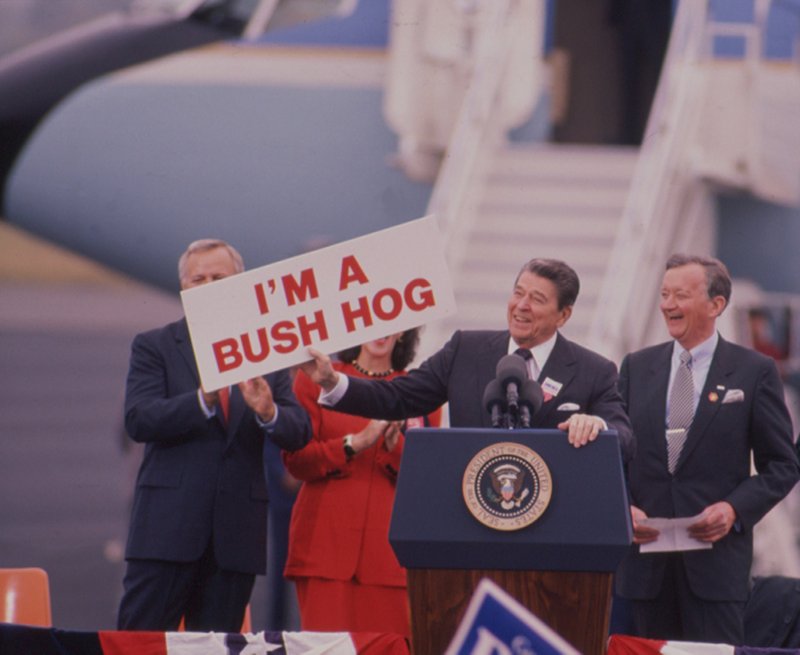In the wake of the crisis in Ukraine, I have constantly heard the question, "What would Ronald Reagan do now?" asked by news people. The point that these questioners are trying to make is that, given the circumstances as they exist today in Ukraine, former President Reagan would not be able to do anything differently.
The first point I have to make is that this assumption is easy to make and impossible to defend. It's like arguing that Mike Tyson could beat Mohammed Ali, even in Ali's prime. It is a fun exercise, but in the end it is a meaningless debate.
The second point that must be made is that this is an inappropriate question to begin with. It assumes that President Reagan would even be in the same situation. It suggests that simply because President Obama has painted himself into this geo-political corner, that Ronald Reagan would have done the same thing. So, the question isn't "what would Reagan do once he painted himself into a corner," it should be "how would Reagan have avoided it," and there are many things to suggest he would have.
Reagan's overarching foreign policy doctrine was "Peace through Strength." And when he said "strength," he meant both economic and military might. Reagan proved his resolve to act, and to act unilaterally, in Granada and by sticking a missile in Gaddafi's ear in Libya. This sends a certain message to our enemies and even to our allies that might deter aggression.
Reagan also believed in the importance of economic strength. We literally spent the Soviet Union into submission, but that was possible because we had the economic power and flexibility to do so. The Reagan economy was exploding. Federal revenue was booming, and although our deficits were high for my taste, our total debt was only one sixth of what it is today.
The bottom line: We had economic vigor and that was something that our adversaries had to consider and our allies could lean on, and that's important. Even Hillary Clinton and Adm. Mike Mullen (retired chairman of the Joint Chiefs) recently admitted that our debt and deficits might be the biggest threat to our national security.
So the question should be "could Ronald Reagan have avoided this entire situation in the Ukraine through his Peace through Strength strategy?" This will be impossible to prove conclusively, but we all have the freedom to think for ourselves and speculate. At least ask yourself the question – do you think the Obama doctrine is working? Actually, what IS the Obama Doctrine?
The President hasn't shared his foreign policy strategy with me, but let me share what I believe it is based on his actions:
Do nothing (as witnessed by his approach in Egypt, Syria, Iran and now the Ukraine).
Then "stuff" will happen. It is the world after all and even if we do nothing, some good things and some bad things will happen.
Then, finally, take credit for all the good things and blame all of the bad thinks on someone else.
Every country in the world is looking for other countries to partner with, and they want partners who are strong, consistent and steadfast. Our foreign policy should be about making America the partner of choice.
Also, we must remember that America wins in a "free" world. When countries are allowed to strive and compete in a free market, everyone wins, but America flourishes. A free market is our "wheelhouse." So, in addition to the fact that liberty is just, America has this selfish reason for wanting the world to be free.
Has our debt and our plodding economy limited our choices to react to critical situations around the world? If we had been more proactive in Egypt, could we have avoided the whole Morsi debacle? If we had gotten involved earlier in Syria to support the early, pro-Western rebels, could we have prevented the chaos that exists there now and saved hundreds of thousands of lives at the same time? Did our eventual hesitation in places like Egypt, Syria, Iran and Ukraine make us look less steadfast to our friends and allies?
It's impossible to go back in time and correct all of these issues so that we can see how an economically stronger and more consistent America might have changed world events today. However, common sense should tell us that we would have more secure allies, more respectful foes, and we would have painted ourselves into fewer corners.
Commentary on 03/30/2014

